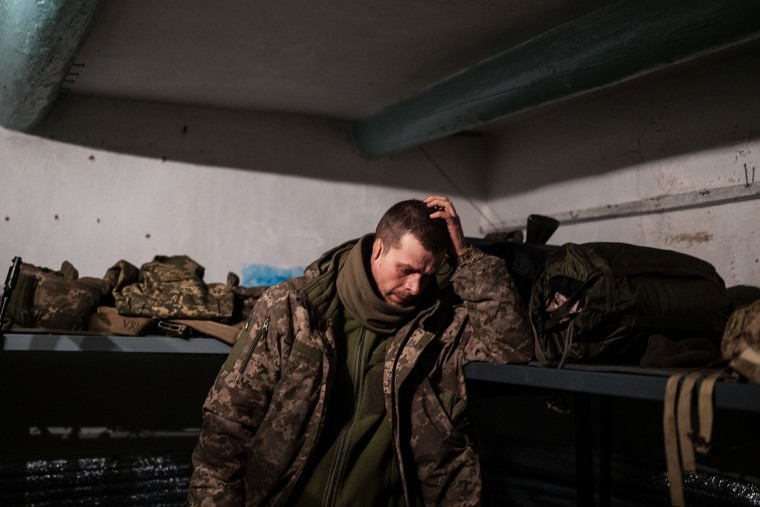Helter-skelter week
Less than a month into Trump’s second term, this helter-skelter week for Ukraine policy has signalled a departure from former President Joe Biden’s pro-Ukraine agenda, stunning even seasoned observers.
The president has dispatched Hegseth, Vice President JD Vance, Secretary of State Marco Rubio and special Ukraine envoy Keith Kellogg to Europe for a series of high-level meetings. On Friday they will attend the Munich Security Conference, an international defense summit.
All the while, Trump has been making seemingly off-the-cuff remarks in Washington, telling Fox News on Monday that Ukrainians “may be Russian someday, or they may not be Russian someday.”
This was warmly received by the Kremlin.
“A big part of Ukraine wants to be — and in fact has already become — a part of Russia,” spokesman Dmitry Peskov told reporters Tuesday. “So this corresponds with Trump’s words.”
That kind of riffing erodes the very real base of support Trump still enjoys in Ukraine. More than half of Ukrainians now favor a swift end to the fighting, according to a Gallup poll in November — a radical development from early in the war when such talk was taboo.
In that sense, Trump’s anti-war message has given hope to many Ukrainians, 44% of whom say they trust the president, according to a December poll by the New Europe Center, a Ukrainian nongovernmental organization whose research promotes European Union standards and practices in Ukraine.
“I think President Putin wants peace and President Zelenskyy wants peace, and I want peace,” Trump said Wednesday. “I just want to see people stop getting killed.”
Likewise, Putin has always claimed he wants an end to a war that he unilaterally started, and which has killed or injured more than 1 million people on both sides, according to NATO, including hundreds of thousands of Ukrainian soldiers.
Another 10 million Ukrainians — a quarter of the population — have fled the violence, which wiped out 30% of the country’s economy in its first year.
“Russia remains ready for negotiations,” Peskov told NBC News last week when asked what it would take to end the war. “A settlement should come as a result.”
While Putin has denied torturing detainees, state media and government officials have reported on allegations of abuses by both sides, such as a recent report by the U.N. refugee agency.
‘World on fire’
The Trump administration and its supporters respond to critics by pointing to what they say are the failed policies that produced the current crisis.
“We inherited a world on fire thanks to a generation of so-called experts from the foreign policy establishment,” Brian Hughes, a National Security Council spokesman, said in an emailed statement to NBC News. “President Trump is quickly reversing their terrible mistakes, and America is once again the dominant force for peace and stability.”
Where Trump sees a world on fire, Biden and his ilk saw an urgent need to save Ukraine.
The country can trace its roots as an independent entity to the Middle Ages. But Putin has used ahistorical revisionism to argue Ukraine is not a legitimate country, annexing Crimea in 2014 and launching a full-scale invasion in February 2022.
Western nations backed Ukraine with some $130 billion of humanitarian and military aid — by far the largest slice, $88 billion, coming from the Biden administration.
That helped Ukraine’s early, stunning pushback of Russian forces bearing down on Kyiv. However hopes of total victory have since faded, with Zelenskyy balancing gratitude for the military support with frequent statements that it’s been too little and often too late.

In recent months Russia has made battlefield advances and continues nightly missile and drone attacks against civilians and energy infrastructure.
The realities of Putin’s momentum, coupled with Washington’s volte-face, have led to a clear mood shift in Kyiv.
Zelenskyy now says that Ukraine’s territory could be regained diplomatically rather than militarily, a far remove from the war’s early days.
“Ukraine and Russia are irreconcilable, so of course there will have to be some reasonable trade-offs,” said Yuriy Sak, an adviser to Ukraine’s Ministry of Defense. “We need to be realistic.”
Still, many Ukrainians remain deeply opposed to doing a deal.
“There will be losses in order to keep peace — territory, people’s lives, people’s destinies,” said Baklazhov, the tortured Ukrainian who is now a deputy at the regional council in Kherson.
“Do we need such a peace plan, is the question?” he asked. “We should fight to the end.”
Daryna Mayer reported from Kyiv, and Alexander Smith from London.


